Share
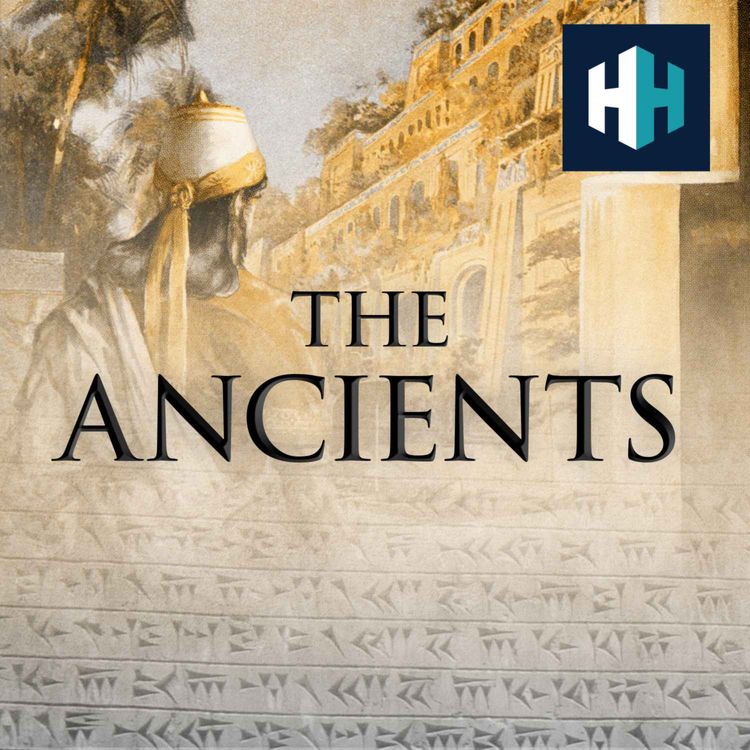
The Ancients
Hanging Gardens of Babylon
A legendary, ancient architectural wonder, the Hanging Gardens of Babylon are one of the most famed wonders of the Ancient world. Described as being a luscious green space - likened to distant mountains, and fed by the Euphrates river, it's hard to know what was fact and what was fiction. So were the Hanging Gardens of Babylon actually real? And is there any archaeological evidence proving so?
In the next episode of our Babylon miniseries, Tristan is joined by Professor Grant Frame, and welcomes back Dr Stephanie Dalley, to delve into this mysterious ancient creation. Looking at the archaeology of ancient-Iraq, the geographic landscape on which the Gardens were built, and examining the socio-political history of ancient Babylon - is it possible that these gardens might have actually existed? And if not, what is this fantastical myth based on?
If you'd like to learn even more, we have hundreds of history documentaries, ad free podcasts and audiobooks at History Hit - subscribe today! To download, go to Android or Apple store
More episodes
View all episodes
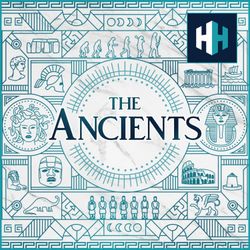
636. The House of Ramesses II: Egypt's Greatest Pharaoh?
58:29||Ep. 636The name of Ramesses the Great is etched deeper into Egypt than almost any other ruler. Colossal statues moulded in his image tower over the Nile. Reliefs of his victories are carved into countless temple walls. But were did Ramesses II come from? And how was this legend of Egyptian history born?In this episode of The Ancients, Tristan Hughes is joined by Dr Campbell Price to uncover the rise of the House of Ramesses and the century of crisis that paved the way for Egypt’s most famous pharaoh. From dynastic turmoil and religious upheaval to military revival and monumental propaganda, discover how Ramesses II seized his moment and shaped a legacy that has endured for over 3,000 years. Was he Egypt’s greatest ruler or its greatest architect of reputation?MOREThe Great SphinxListen on AppleListen on SpotifyThe Pyramids of GizaListen on AppleListen on Spotify Watch this episode on our YouTube channel: @TheAncientsPodcastPresented by Tristan Hughes. Audio editor is Aidan Lonergan. The producer is Joseph Knight. The senior producer is Anne-Marie Luff.All music courtesy of Epidemic SoundsThe Ancients is a History Hit podcast.Sign up to History Hit for hundreds of hours of original documentaries, with a new release every week. Sign up at https://www.historyhit.com/subscribe. You can take part in our listener survey here:https://insights.historyhit.com/history-hit-podcast-always-on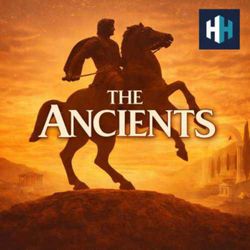
635. The Fall of Persia | Alexander the Great
01:13:44||Ep. 635Tristan Hughes and Dr Adrian Goldsworthy continue the special series on Alexander the Great, delving into the epic sieges of Tyre and Gaza in 332 BC, and Alexander's triumphant campaign through Egypt. They explore the strategic brilliance at the Battle of Gaugamela, the fall of Persepolis, and the eventual demise of Darius III. As Alexander's army pushes further east, tackling internal conspiracies and relentless combat, they traverse the formidable landscapes of Bactria and Afghanistan, capturing Alexander's the blend of military genius, relentless ambition, and the complex legacy of one of history's most formidable commanders.MOREThe Ancient AmazonListen on AppleListen on SpotifyThe Walls of BabylonListen on AppleListen on SpotifyPresented by Tristan Hughes. Audio editor is Aidan Lonergan, the producer is Joseph Knight. The senior producer is Anne-Marie Luff.All music courtesy of Epidemic SoundsThe Ancients is a History Hit podcast.Sign up to History Hit for hundreds of hours of original documentaries, with a new release every week. Sign up at https://www.historyhit.com/subscribe. You can take part in our listener survey here: https://insights.historyhit.com/history-hit-podcast-always-on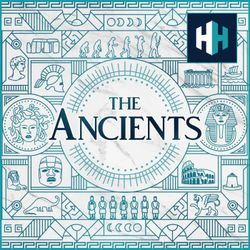
634. The Skulls of Jericho
53:53||Ep. 634In the depths of ancient Jericho, beneath layers of earth dating back 10,000 years, archaeologists uncovered something extraordinary: human skulls cast in plaster, their faces carefully reconstructed and their eyes set with shells. Who were these haunting figures meant to represent?In this episode of The Ancients, Tristan Hughes is joined by archaeologist Raven Todd DaSilva to explore the mysterious plastered skulls of Jericho. Dating to the Neolithic period, these striking objects reveal complex beliefs about memory, identity and the dead in some of the world’s earliest farming communities. How were they made? What did they mean? And why did this unusual practice spread across the Levant? Join us to dive into one of prehistory’s most compelling archaeological discoveries.MOREJericho:Listen on AppleListen on Spotify Origins of the Inuit:Listen on AppleListen on Spotify Watch this episode on our YouTube channel: @TheAncientsPodcastPresented by Tristan Hughes. Audio editor is Aidan Lonergan. The producer is Joseph Knight. The senior producer is Anne-Marie Luff.All music courtesy of Epidemic SoundsThe Ancients is a History Hit podcast.Sign up to History Hit for hundreds of hours of original documentaries, with a new release every week. Sign up at https://www.historyhit.com/subscribe. You can take part in our listener survey here:https://insights.historyhit.com/history-hit-podcast-always-on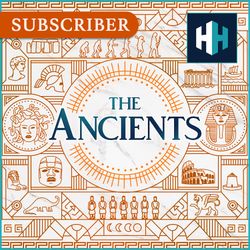
633. After Ancients: Sir Barry Cunliffe
31:45||Ep. 633In this special subscriber episode, we have an exclusive interview with the renowned archaeologist, Sir Barry Cunliffe.Barry shares insights from his extraordinary 50-year career, detailing his early days, notable excavations, including at Fishborne Roman Palace, where a last-minute dig unearthed a significant mosaic, and the challenging excavation of the sacred, but deadly, spring in Bath.Presented by Tristan Hughes. Audio editor is Aidan Lonergan. The producer is Joseph Knight. The senior producer is Anne-Marie Luff.All music courtesy of Epidemic SoundsThe Ancients is a History Hit podcast.Sign up to History Hit for hundreds of hours of original documentaries, with a new release every week. Sign up at https://www.historyhit.com/subscribe. You can take part in our listener survey here:https://insights.historyhit.com/history-hit-podcast-always-on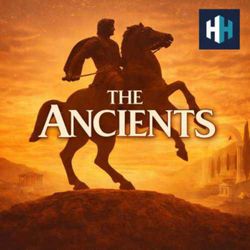
632. The Invasion of Persia | Alexander the Great
01:04:55||Ep. 632In spring 334 BC, a young Macedonian king sets out to conquer the Persian Empire.Tristan Hughes and Dr Adrian Goldsworthy explore Alexander the Great’s early campaigns, from the daring crossing into Asia to incredible victories. They discuss Alexander's strategic genius, respect toward Persian royalty, and how these triumphs forged his path to legend.MOREThe PersiansListen on AppleKing MidasListen on AppleListen on SpotifyPresented by Tristan Hughes. Audio editor is Aidan Lonergan, the producer is Joseph Knight. The senior producer is Anne-Marie Luff.All music courtesy of Epidemic SoundsThe Ancients is a History Hit podcast.Sign up to History Hit for hundreds of hours of original documentaries, with a new release every week. Sign up at https://www.historyhit.com/subscribe. You can take part in our listener survey here: https://insights.historyhit.com/history-hit-podcast-always-on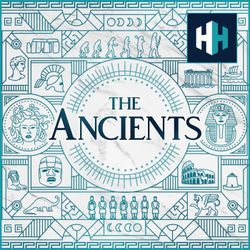
631. How to Write Cuneiform with Dr. Irving Finkel
01:00:21||Ep. 631More than 5,000 years ago, a revolutionary script emerged in the fertile lands of Mesopotamia that would transform how people counted, governed, worshipped and told stories. This was cuneiform, the world’s earliest known writing system.In this episode of The Ancients, Tristan Hughes is joined by Dr Irving Finkel to uncover how cuneiform actually worked and how you would write it yourself. From humble beginnings as simple pictograms tracking beer and grain, to the wedge-shaped signs that recorded myths, laws and epic tales long before the Bible, this episode explores how cuneiform spread across Sumer, Babylon, Assyria and Persia — and why these clay tablets remain one of archaeology’s richest windows into the ancient world.MORENoah's Ark and the FloodListen on AppleListen on Spotify The World's Oldest LettersListen on AppleListen on Spotify Watch this episode on our NEW YouTube channel: @TheAncientsPodcastPresented by Tristan Hughes. Audio editor is Aidan Lonergan. The producer is Joseph Knight. The senior producer is Anne-Marie Luff.All music courtesy of Epidemic SoundsThe Ancients is a History Hit podcast.Sign up to History Hit for hundreds of hours of original documentaries, with a new release every week. Sign up at https://www.historyhit.com/subscribe. You can take part in our listener survey here:https://insights.historyhit.com/history-hit-podcast-always-on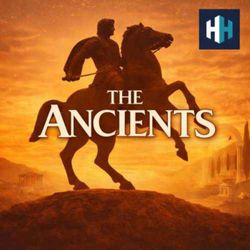
630. Alexander the Great | Rise to Power
01:24:13||Ep. 630NEW SERIES! Journey through the early life of Alexander the Great, from his education under Aristotle to his first military experiences and rise to Macedonian kingship.In this first episode, charting Alexander's incredible early life, Tristan Hughes and Dr Adrian Goldsworthy explore Alexander's formative years, the Battles that built the world's most formidable military leader and the immediate challenges following his father's assassination.MOREThe Rise of Hannibal with Adrian GoldsworthyListen on AppleListen on SpotifyDarius the Great, Persian King of KingsListen on AppleListen on SpotifyPresented by Tristan Hughes. Audio editor is Aidan Lonergan and the producer is Joseph Knight. The senior producer is Anne-Marie Luff.All music courtesy of Epidemic SoundsThe Ancients is a History Hit podcast.Sign up to History Hit for hundreds of hours of original documentaries, with a new release every week. Sign up at https://www.historyhit.com/subscribe. You can take part in our listener survey here: https://insights.historyhit.com/history-hit-podcast-always-on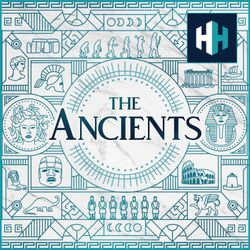
629. Adam and Eve
59:05||Ep. 629Adam and Eve: parents of humanity, or characters in a Near Eastern myth about wisdom, mortality, and the limits of being human?Tristan Hughes and Dr Dylan Johnson strip away the Sunday school varnish to re-examine the story of Adam and Eve, starting with the question: was there really an apple? They discuss the origins and multiple layers of the story, try and pinpoint where Eden might have been located, and trace the tale of lost immortality that echoes through the legends of Gilgamesh, Sumerian rivers, and the earliest biblical textsMOREMoses & The ExodusListen on Apple Listen on SpotifyThe Ark of The CovenantListen on Apple Listen on SpotifyWatch this episode on our NEW YouTube channel: @TheAncientsPodcastPresented by Tristan Hughes. Audio editor is Aidan Lonergan. The producer is Joseph Knight. The senior producer is Anne-Marie Luff.All music courtesy of Epidemic SoundsThe Ancients is a History Hit podcast.Sign up to History Hit for hundreds of hours of original documentaries, with a new release every week. Sign up at https://www.historyhit.com/subscribe. You can take part in our listener survey here:https://insights.historyhit.com/history-hit-podcast-always-on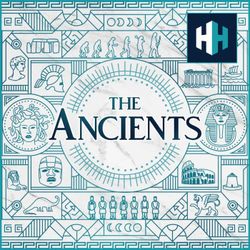
628. The First Popes
56:09||Ep. 628What do we know about the earliest Popes, and how did they shape the early Christian Church amidst persecution?Tristan Hughes is joined by Professor Rosamond McKitterick to journey back to Imperial Rome to uncover the fascinating tales of the earliest Popes, focusing on St. Peter and his possible connection to Mark's gospel, Sylvester I during Constantine's reign, and Pope Leo I who confronted Atilla the Hun.MOREJesus of NazarethListen on AppleListen on SpotifyThe Apocryphal GospelsListen on AppleListen on SpotifyPresented by Tristan Hughes. Audio editor is Aidan Lonergan and the producer is Joseph Knight. The senior producer is Anne-Marie Luff.All music courtesy of Epidemic SoundsThe Ancients is a History Hit podcast.Sign up to History Hit for hundreds of hours of original documentaries, with a new release every week. Sign up at https://www.historyhit.com/subscribe. You can take part in our listener survey here: https://insights.historyhit.com/history-hit-podcast-always-onAudio for Uploader: